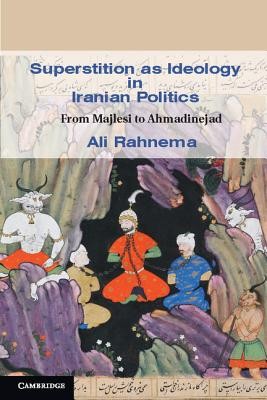
- We will send in 10–14 business days.
- Author: Ali Rahnema
- Publisher: Cambridge University Press
- ISBN-10: 0521182212
- ISBN-13: 9780521182218
- Format: 16.8 x 22.8 x 1.8 cm, softcover
- Language: English
- SAVE -10% with code: EXTRA
Reviews
Description
A superstitious reading of the world based on religion may be harmless at a private level, yet employed as a political tool it can have more sinister implications. As this fascinating book by Ali Rahnema, a distinguished Iranian intellectual, relates, superstition and mystical beliefs have endured and influenced ideology and political strategy in Iran from the founding of the Safavid dynasty in the sixteenth century to the present day. The endurance of these beliefs has its roots in a particular brand of popular Shiism, which was compiled and systematized by the eminent cleric Mohammad Baqer Majlesi in the seventeenth century. Majlesi, who is considered by some to be the father of Iranian Shiism, encouraged believers to accept fantastical notions as part of their faith and to venerate their leaders as superhuman. As Rahnema demonstrates through a close reading of the Persian sources and with examples from contemporary Iranian politics, it is this supposed connectedness to the hidden world that has allowed leaders such as Muhammad Reza Shah Pahlavi and Mahmud Ahmadinejad to present themselves and their entourage as representatives of the divine, and their rivals as the embodiment of evil.
EXTRA 10 % discount with code: EXTRA
The promotion ends in 19d.12:10:53
The discount code is valid when purchasing from 10 €. Discounts do not stack.
- Author: Ali Rahnema
- Publisher: Cambridge University Press
- ISBN-10: 0521182212
- ISBN-13: 9780521182218
- Format: 16.8 x 22.8 x 1.8 cm, softcover
- Language: English English
A superstitious reading of the world based on religion may be harmless at a private level, yet employed as a political tool it can have more sinister implications. As this fascinating book by Ali Rahnema, a distinguished Iranian intellectual, relates, superstition and mystical beliefs have endured and influenced ideology and political strategy in Iran from the founding of the Safavid dynasty in the sixteenth century to the present day. The endurance of these beliefs has its roots in a particular brand of popular Shiism, which was compiled and systematized by the eminent cleric Mohammad Baqer Majlesi in the seventeenth century. Majlesi, who is considered by some to be the father of Iranian Shiism, encouraged believers to accept fantastical notions as part of their faith and to venerate their leaders as superhuman. As Rahnema demonstrates through a close reading of the Persian sources and with examples from contemporary Iranian politics, it is this supposed connectedness to the hidden world that has allowed leaders such as Muhammad Reza Shah Pahlavi and Mahmud Ahmadinejad to present themselves and their entourage as representatives of the divine, and their rivals as the embodiment of evil.


Reviews